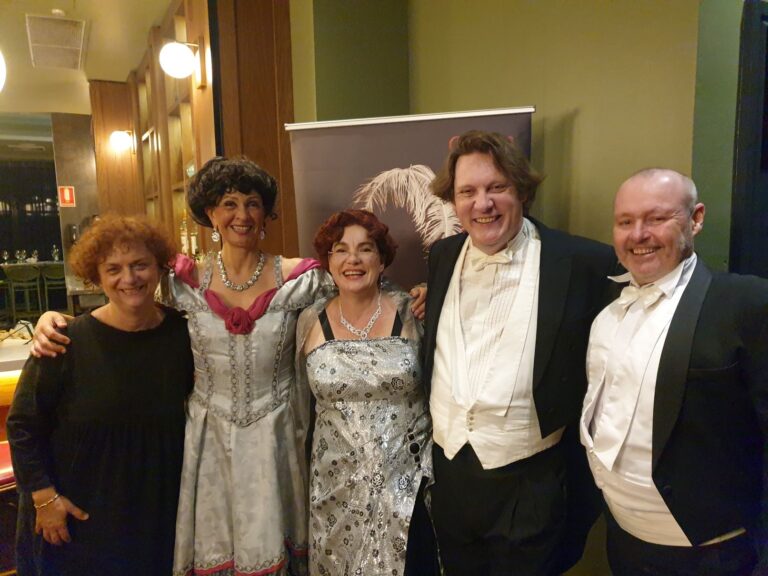
The spirit and the guts of Palestine
According to international news coverage, Palestine is a state rife with conflict, politics and barbed wire. But according to leading Palestinian filmmakers, what goes on around the Gaza Strip is far different.
That’s what Najwa Najjar says about her first feature film, Pomegranates and Myrhh, which will be screened at this year’s Palestinian Film Festival in Sydney.
The festival will showcase 14 Palestinian films, opening with the 2009 Cannes Golden Palm nominated film, The Time That Remains, written and directed by acclaimed Palestinian filmmaker Elia Sulieman. Najjar’s film, which screened at Sundance earlier this year, promises to challenge the widely held image of Palestine.
“More often than not, in places of conflict the individual issues are overlooked or forgotten in lieu of the serious politics on the ground,” Najjar says.
“This is dangerous. Once the individual is forgotten, then the dehumanisation becomes easier and the continuation of the conflict is somehow easier.
“When people are killed, arrested, lose their homes or don’t have names or faces, they don’t matter as much as they are no longer ‘real’”.
As a result, Pomegranates and Myrhh emerges as an intensely intimate exploration of two young newlyweds living in Palestine. Politics is consequential to their relationship, as land is confiscated and imprisonment ensues.
It’s a way of discussing the national issues, says Najjar, without “hitting the audience over the head” with a political statement.
“I don’t have to show you the Intifada. I do it in another way,” Najjar explains. “I try to show our story, told by us and made by us. We felt it was time to show Palestine and Palestinians outside the framework – that we have lives which exist outside the conflict, even though our lives are affected by the conflict.”
Untold civilian stories run a steady theme through the course of films featured at this year’s festival, where the boundaries of fact and fiction blur. Along with Pomegranates and Myrhh, Ahmad Habash’s animated film Fatenah will be showcased. It documents the life of a 28-year-old woman struggling with treating breast cancer while living under occupation in Gaza.
Fatenah is Palestine’s first 3D animated feature film, thanks to support and sponsorship from the World Health Organization. Habash, who directed the film, sees its release as another notch in the growing Palestinian film industry.
“Palestinian films are booming – Divine Intervention, Paradise Now … Rachid Masharawi’s films,” he says. “There is a big movement in films in the Middle East area, and because of this movement you can feel it getting organised and growing to shape into an industry.”
Habash concedes that conveying the confronting story in 3D animation was not easy: “Because of the strong storylines it was a personal challenge to do this kind of animation.”
Almost two years of work have paid off for Habash and the team behind Fatenah. The film’s release has been highly anticipated, and Sydneysiders will have the opportunity to view the film when the festival begins this week.
This year’s program also includes the likes of Lion Geller and Markus Vetter, whose film The Heart of Jenin has tallied numerous international awards, including the Cinema for Peace Award in Berlin. Their film is a story of peace amidst conflict and recounts the true story of the accidental shooting of a 12-year-old Palestinian boy by Israeli soldiers in the West Bank.
Organisers of the event have one measure for deciding which films will feature on the program. “It’s simple,” says Sohail Dahdal, the festival’s artistic director. “As we are not a competitive festival, our criterion is for high quality Palestinian films, which show a new side of Palestine and its people.”
Dahdal hopes the festival will draw a wide range of Australians to each screening and he is confident it will thanks to the many documentaries, features, animations and short films on offer. “I think this year we have films that cater to all tastes,” he says.
It’s the universal themes of love and aspirations, as well as the daily ups and downs of life, that Dahdal says come to the foreground in all the films. “The other story, about occupation, is still there to see. From a new angle I guess.”
The 2009 Palestinian Film Festival begins in Sydney on October 29 and concludes in Adelaide on November 15. For program details and screening locations, visit http://palestinianfilmfestival.com.au.
-By Monica Schubert









